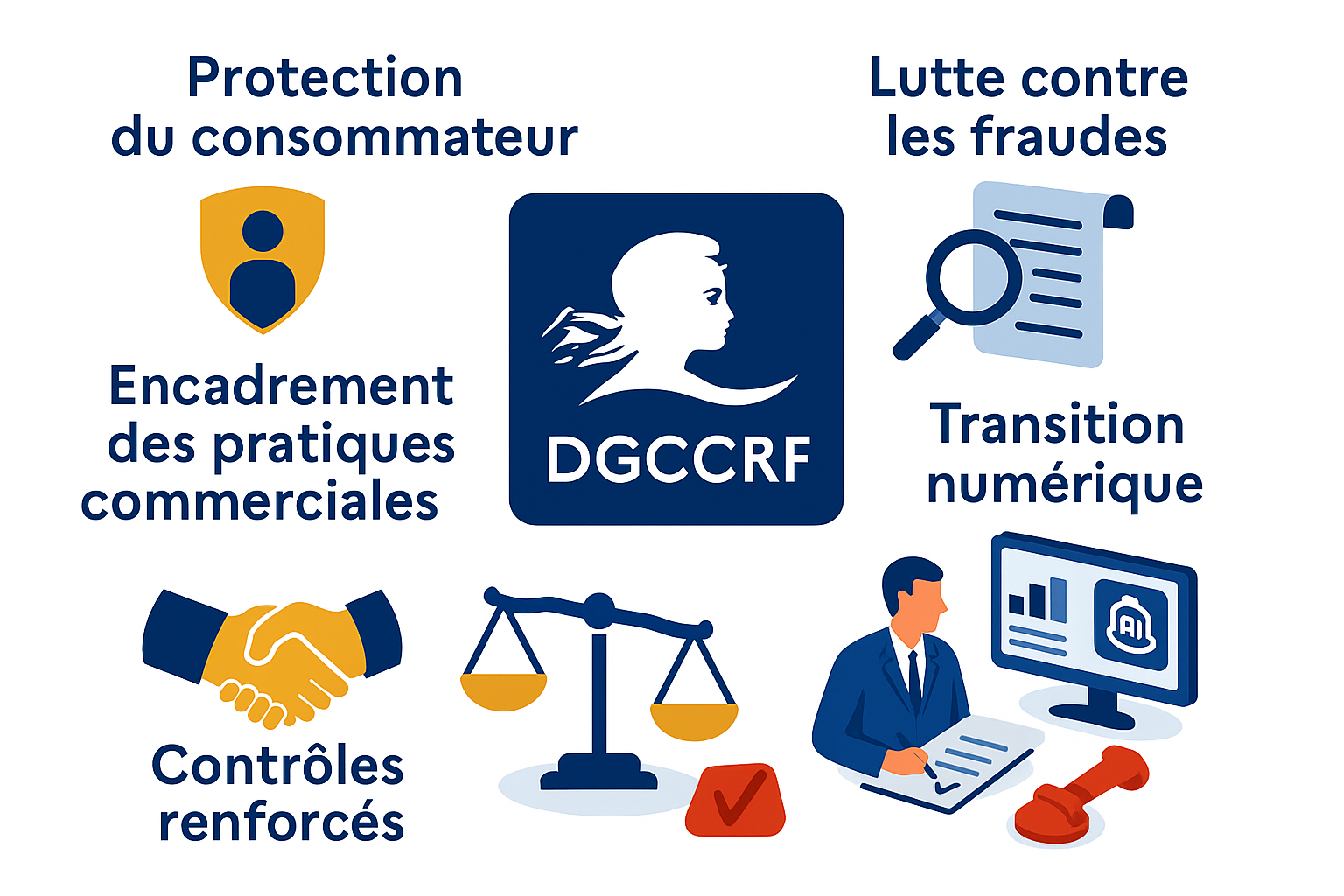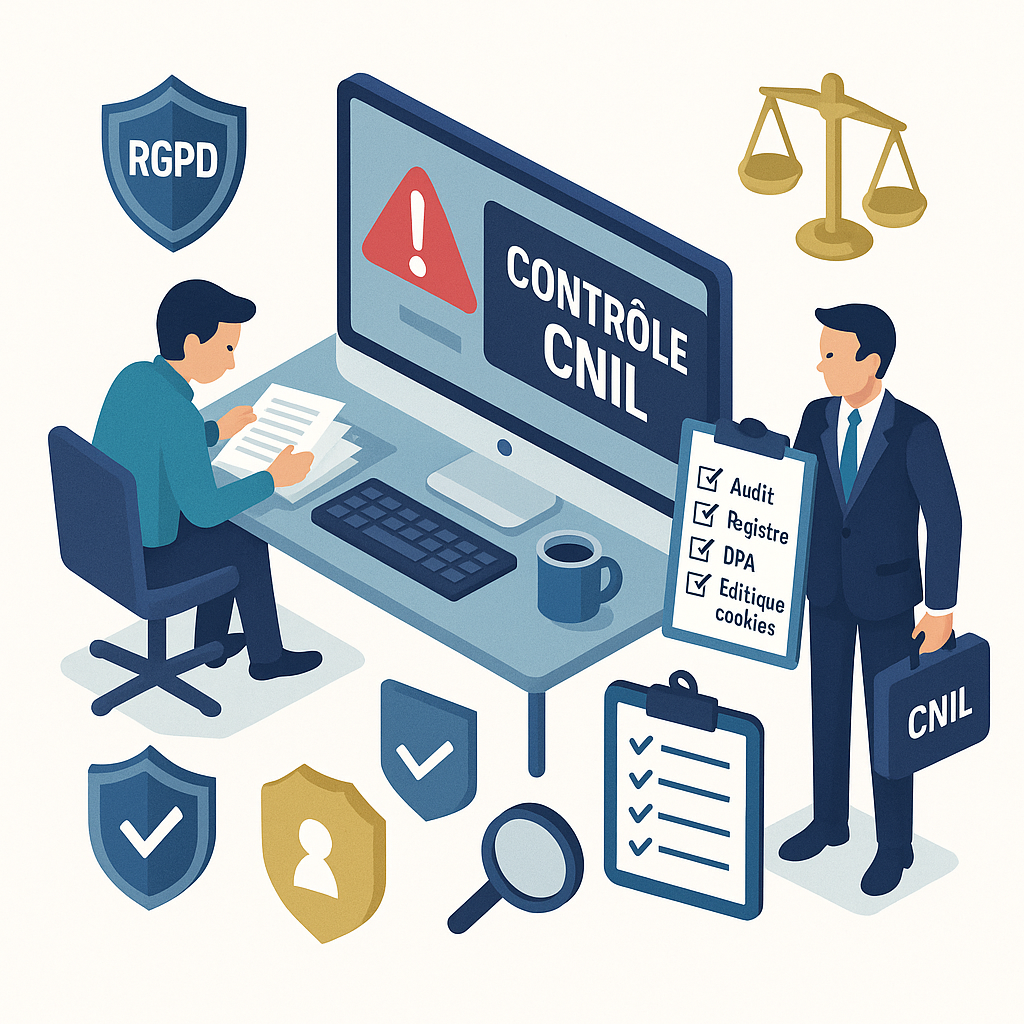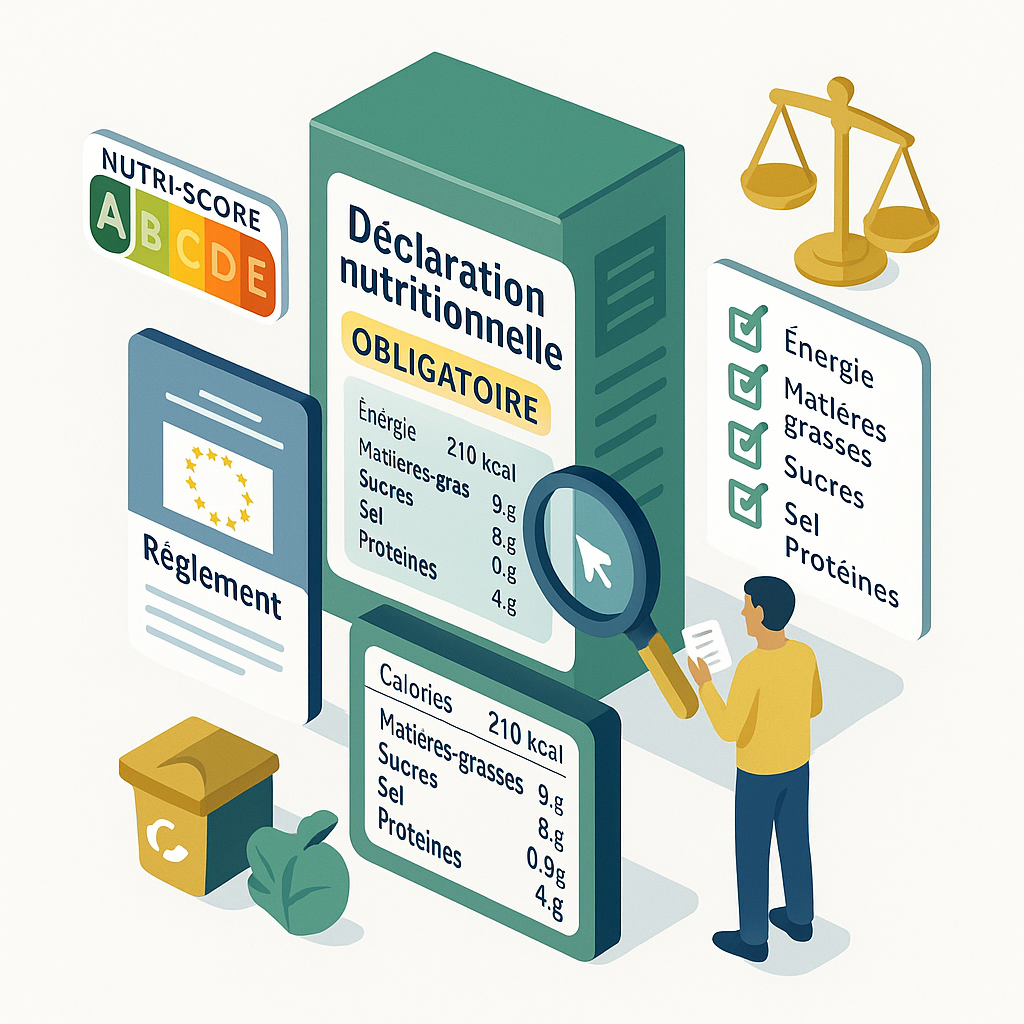The Direction Générale de la Concurrence, de la Consommation et de la Répression des Fraudes (DGCCRF) recently unveiled a new strategic plan for the period 2025-2028, marking a turning point in its missions in the face of contemporary challenges. In a constantly changing economic context, consumer protection is more crucial than ever.
This ambitious plan illustrates the DGCCRF's determination to adapt to economic transformations, while reaffirming its role as an economic regulator at the service of society. The participative approach adopted for its elaboration underlines the importance of involving all stakeholders, from national agents to local players, in the implementation of this shared vision. By integrating issues such as the ecological transition, purchasing power and changing consumer practices, the DGCCRF is committed to meeting the new challenges that lie ahead.
This introduction thus lays the foundations for the objectives and actions that will be deployed over the coming years, promising to shed light on the plan's flagship initiatives in the remainder of this article.
If you need a consumer law attorney, contact me!
1. What are the key objectives of the DGCCRF's strategic plan?
The DGCCRF 's new strategic plan for the period 2025-2028 sets out clear objectives aimed at strengthening its role as an economic regulator. By integrating modern issues such as globalization, purchasing power and the ecological and digital transitions, the DGCCRF intends to adapt to growing consumer expectations and market constraints.
To achieve this, the plan is based on several key initiatives:
- Strengthen business intelligence: the aim is to anticipate changes in business practices and detect emerging fraud schemes.
- Improving investigations and controls: by combining regulation with support for professionals, the DGCCRF will increase the effectiveness of its actions.
- Promoting consumer awareness: educating the public to encourage informed, responsible choices.
These strategies aim not only to protect consumer rights, but also to create a climate of transparency and trust between the various stakeholders.
As this plan unfolds, the DGCCRF continues to step up its commitment to meeting today's challenges, by preparing the ground for concrete, effective action in the regions.
2. How does the DGCCRF plan to maximize its impact in the field?
To increase its impact, the DGCCRF has developed targeted strategies aimed at boosting its effectiveness in the field. In a fast-changing economic environment, actions in the field must be precise and tailored to consumers' needs.
Key initiatives include :
- Develop business intelligence: The DGCCRF will set up observation systems to better analyze market trends, enabling it to anticipate the behavior of consumers and economic players.
- Improving investigations: Particular attention will be paid to optimizing investigations to detect unfair practices and fraud. The DGCCRF will be able to act more effectively by strengthening its control resources.
- Accompanying professionals: Measures will be put in place to support businesses in complying with regulations, thus promoting a framework of sustainable and responsible consumption.
- Raising consumer awareness: Awareness-raising campaigns will be run to educate the public about their rights and the issues involved in sustainable consumption, in line with the plan'sfocus on ecological transition.
This global approach is designed to ensure that the DGCCRF remains responsive and relevant to contemporary issues, facilitating better consumer protection while working towards sustainable consumption.
By reinforcing its actions and promoting a participative approach, the DGCCRF intends to give its missions greater legitimacy, which is essential for establishing a constructive dialogue with all stakeholders.
3. What are the areas of cooperation and skills enhancement for the DGCCRF?
The DGCCRF, as part of a reinforced cooperation framework, emphasizes the importance of developing effective synergies with various players. The aim is to ensure a coherent, integrated approach to contemporary challenges.
The main axes of this cooperation include :
- Inter-administrative collaboration: Strengthen links with other public administrations to harmonize policies and optimize the execution of investigation and control plans.
- Commitment to the consumer movement: Work closely with consumer associations to better understand their expectations and incorporate their feedback into DGCCRF actions.
- Partnerships with professional organizations: Collaborate with economic players to foster a framework for dialogue, useful for the implementation of regulations adapted to market realities.
- International and European relations: Get involved in discussions at European and global level to align regulatory practices and enhance efficiency in the fight against fraud.
At the same time, the DGCCRF plans to invest significantly in enhancing the skills of its staff. This will involve :
- Ongoing training: Offer training programs to ensure that agents are up to date with the latest regulatory developments and available digital tools.
- Use of high-performance digital tools: Integrate technology into work processes to improve efficiency.
- Developing career paths: Creating transparent opportunities for agents to motivate them and guarantee a high level of expertise within the organization.
The aim of these initiatives is to establish a collaborative working framework, fostering a participative approach whose ultimate objective is to improve consumer protection and strengthen confidence in the DGCCRF. By integrating the skills and knowledge of the various stakeholders, the DGCCRF's strategic plan positions it as a key player in economic regulation in France.




